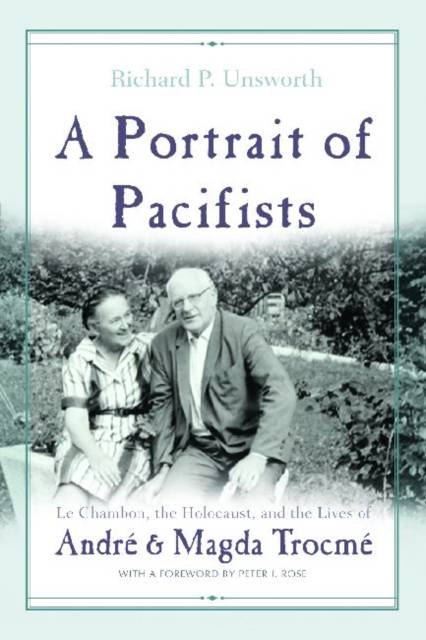
- Retrait gratuit dans votre magasin Club
- 7.000.000 titres dans notre catalogue
- Payer en toute sécurité
- Toujours un magasin près de chez vous
- Retrait gratuit dans votre magasin Club
- 7.000.0000 titres dans notre catalogue
- Payer en toute sécurité
- Toujours un magasin près de chez vous
A Portrait of Pacifists
Le Chambon, the Holocaust, and the Lives of André and Magda Trocmé
Richard P UnsworthDescription
This biography tells the story of André and Magda Trocmé, two individuals who made nonviolence a way of life. During World War II, the southern French town of Le Chambon-sur-Lignon and its surrounding villages became a center where Jews and others in flight from Nazi roundups could be hidden or led abroad, and where children with parents in concentration camps could be nurtured and educated. The Trocmés' courage during World War II has been well documented in books and film, yet the full arc of their lives--the impulse that led them to devote themselves to nonviolence and their extensive work in the decades following the war--has never been compiled into a full-length biography.
Based on the Trocmés' unpublished memoirs, interviews, and the author's research, the book details the couple's role in the history of pacifism before, during, and after the war. Unsworth traces their mission of building peace by nonviolence throughout Europe to Morocco, Algeria, Japan, Vietnam, and the United States. Analyzing the political and religious complexities of the pacifist movement, the author underscores the Trocmés' deeply personal commitment. Regardless of which nation was condoning violence, shaping international relations, or pressing for peace, and regardless of whose theology dominated the pulpits, both André and Magda remained driven by conscience to make nonviolence the hallmark of their life's work.Spécifications
Parties prenantes
- Auteur(s) :
- Editeur:
Contenu
- Nombre de pages :
- 358
- Langue:
- Anglais
- Collection :
Caractéristiques
- EAN:
- 9780815609704
- Date de parution :
- 27-04-12
- Format:
- Livre relié
- Format numérique:
- Genaaid
- Dimensions :
- 160 mm x 236 mm
- Poids :
- 598 g

Les avis
Nous publions uniquement les avis qui respectent les conditions requises. Consultez nos conditions pour les avis.






